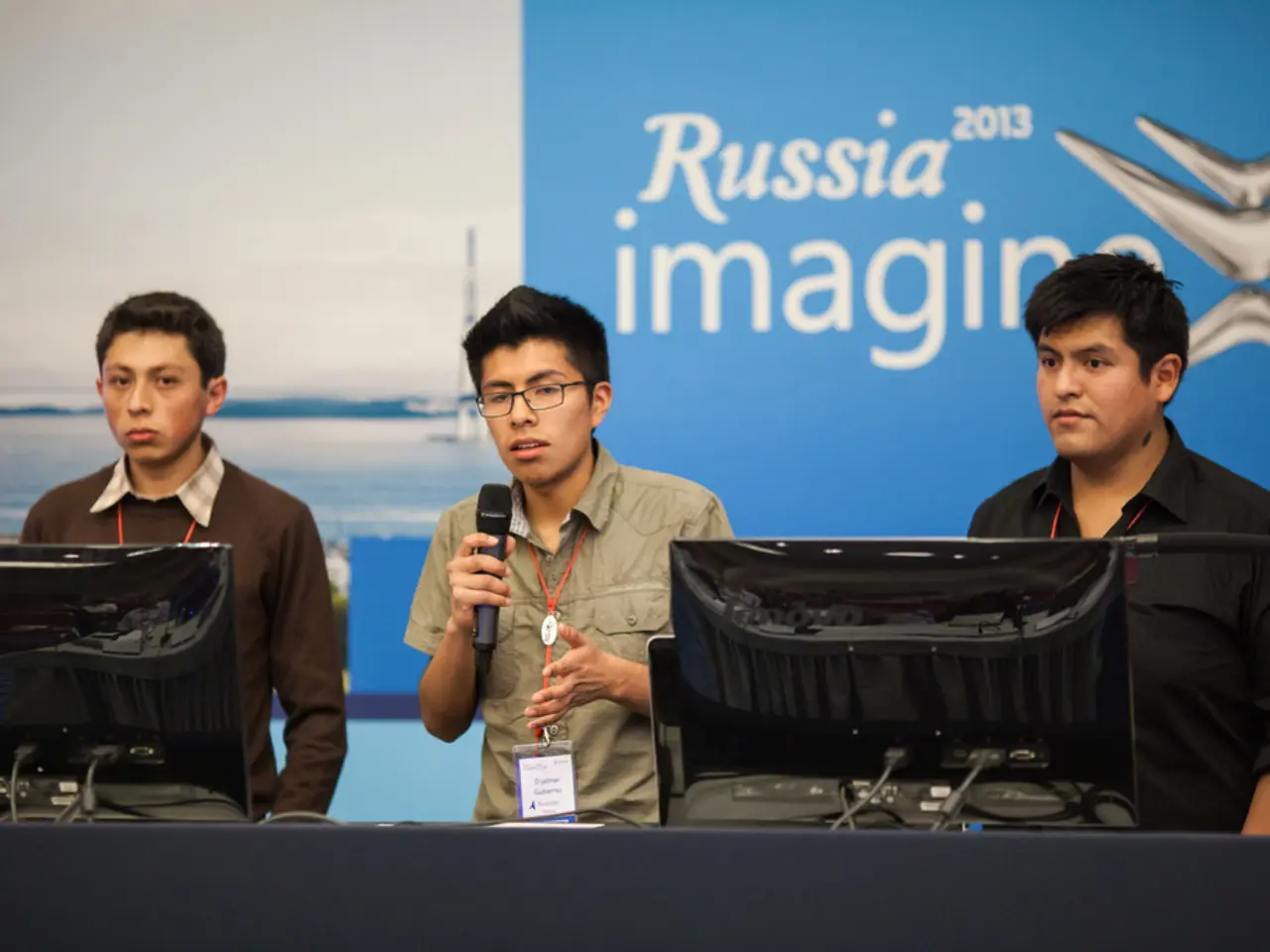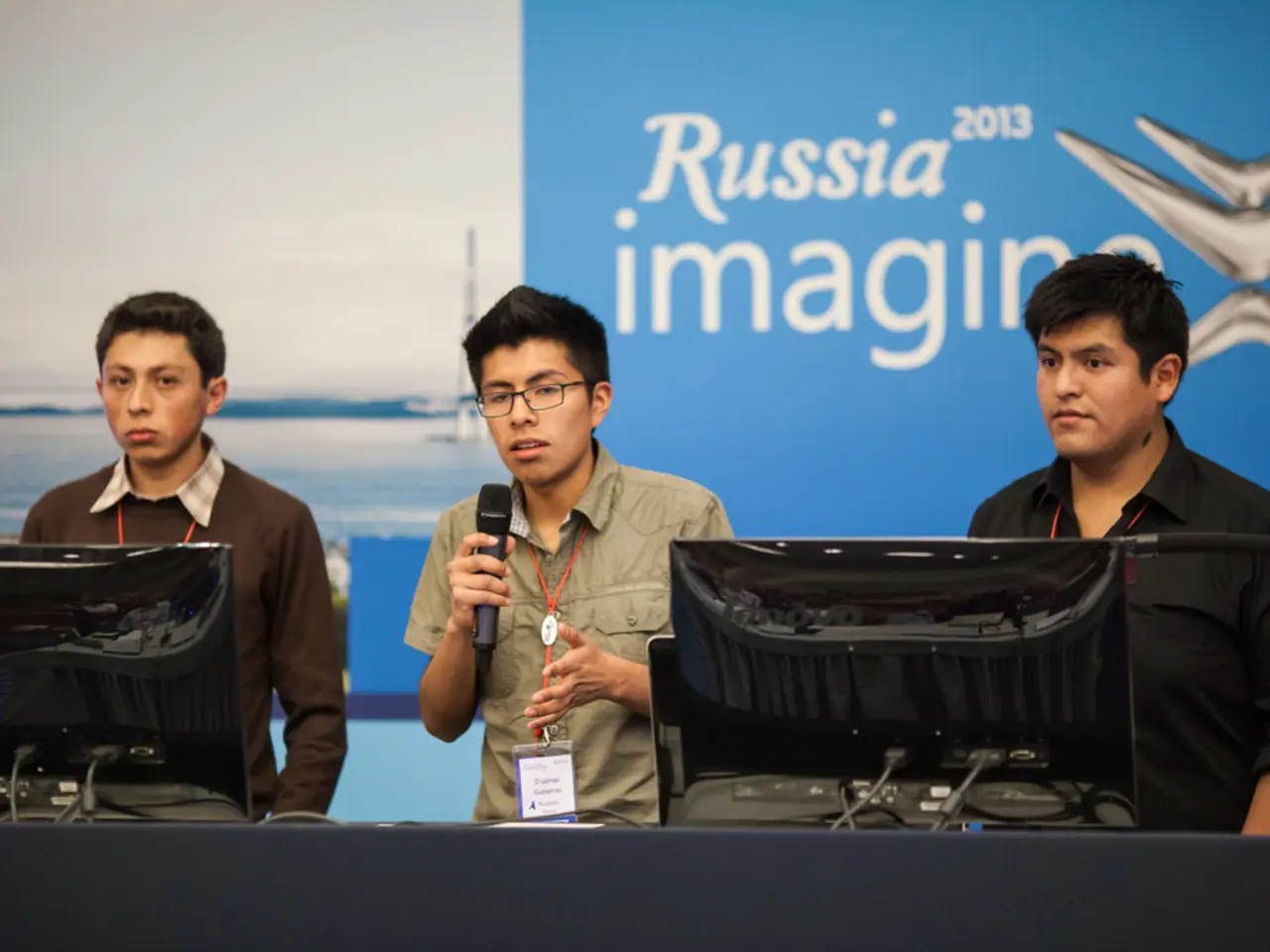Hamas rejects accusations of disarmament; argues that resistance, under the ongoing occupation, remains a lawful action
In the ongoing negotiations between Israel and Hamas, a key point of contention remains the disarmament of the Palestinian militant group. As of early August 2025, Hamas is unwilling to consider disarmament unless an independent Palestinian state is established and broader political conditions are met.
Negotiations on a ceasefire have hit a roadblock, with Hamas suspending talks partly because Israel has not ceased hostilities or met their demands. This stance was reiterated during the current discussion, with Hamas emphasizing the importance of a fully sovereign and independent Palestinian state with Jerusalem as its capital.
International actors, including the United Nations and the League of Arab States, have called for disarmament linked with hostage release and ceasefire. A recent high-level UN conference produced an outcome document endorsing this call. However, Hamas's position remains firm that disarmament is conditional on achieving Palestinian independence.
The humanitarian situation in Gaza is deteriorating severely due to ongoing conflict and Israeli restrictions on aid. Warnings of famine and increasing child malnutrition and deaths underscore the complexity and urgency of any negotiations.
In a statement released on their official Telegram channel, Hamas clarified that the group would not consider disarmament unless all Palestinian national rights are fully achieved. The statement also cited international norms in support of their position.
The rumors about Hamas agreeing to disarm originated during a meeting between U.S. Middle East envoy Steve Witkoff and families of Israeli captives in Tel Aviv. However, Hamas has since denied agreeing to disarm as part of ongoing cease-fire and prisoner exchange negotiations in Gaza.
Meanwhile, Foreign Minister Mevlüt Çavuşoğlu's (FM Fidan) office has criticized Israel's bid to expel Gazans and annex the West Bank, in a meeting with Hamas representatives. During the Tel Aviv meeting, Witkoff reportedly expressed Israeli Prime Minister Benjamin Netanyahu's determination to end the war.
The details about the ongoing cease-fire and prisoner exchange negotiations in Gaza were not provided in the article. It is essential to note that resistance and bearing arms remain Hamas's national and legal right as long as the Israeli occupation persists.
This context highlights the principal conditions and current stalemate surrounding Hamas disarmament efforts within the Israeli-Palestinian conflict. The urgency of the humanitarian crisis in Gaza adds a layer of complexity to these negotiations, making a swift resolution crucial for all parties involved.
- Turkey, being a key player in the Middle East politics, has spoken out against Israel's bid to expel Gazans and annex the West Bank, supporting Hamas's stance that disarmament should only be considered once all Palestinian national rights are achieved.
- In light of the ongoing war-and-conflicts in the Middle East, including the Israeli-Palestinian conflict, international actors such as the United Nations and the League of Arab States have called for disarmament linked with hostage release and ceasefire, but Hamas, based in Gaza, remains firm in its condition that disarmament is conditional on achieving Palestinian independence.






